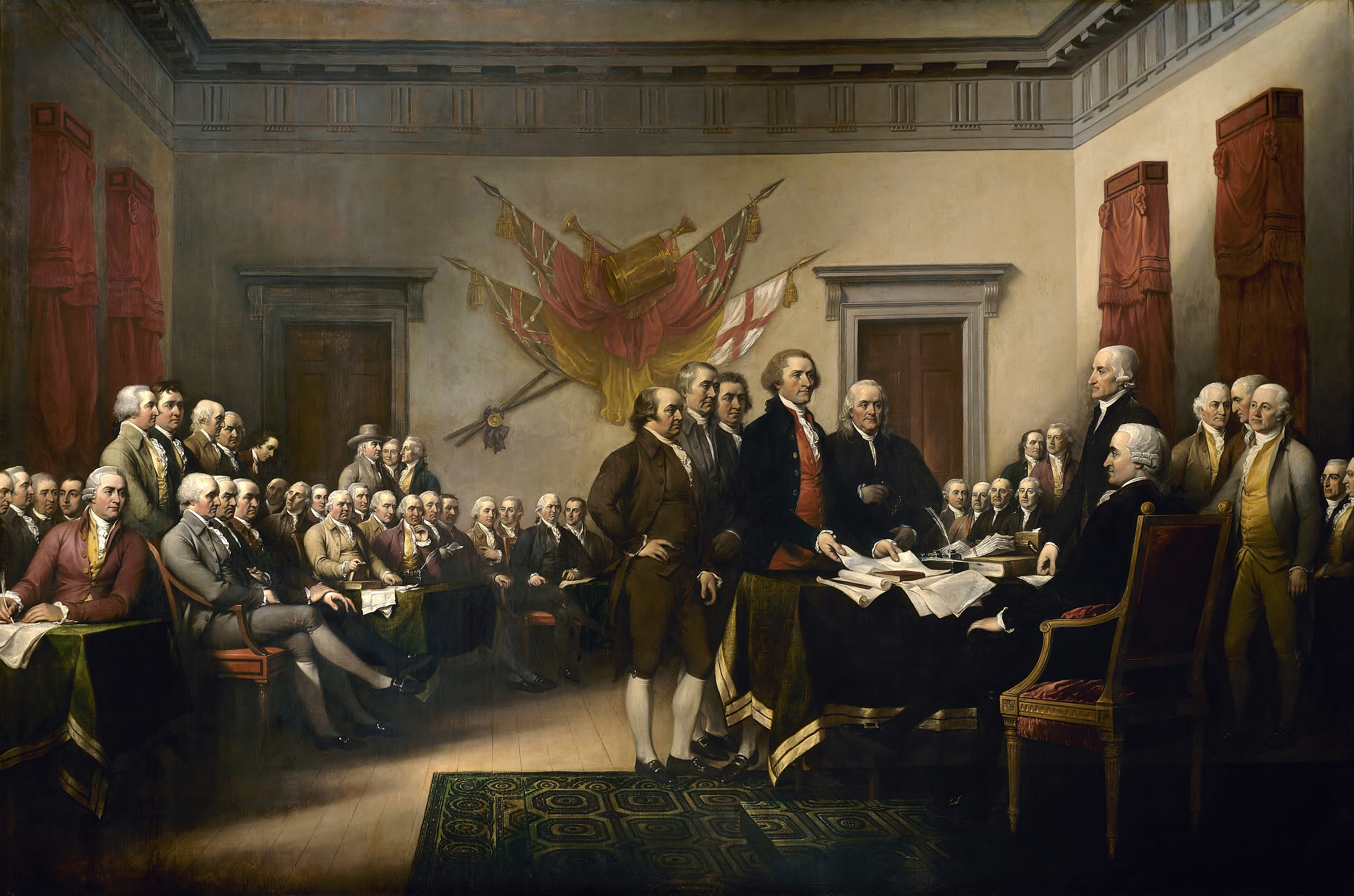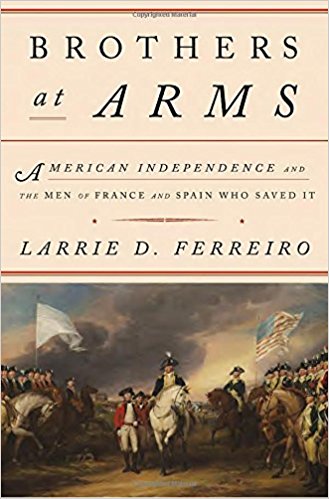

On a warm summer’s day in Philadelphia in 1776, early in the throes of American Revolution, Thomas Jefferson wrestled with the opening sentences of a document that would bring much-needed help to the embattled colonists. After over a year of war with Britain, the military situation was dire. Without the direct intervention of Britain’s adversaries, France and Spain, the colonies could not hope to prevail against the superior British army and navy. And so he drafted an appeal to Louis XVI of France and Carlos III of Spain—the Declaration of Independence.
Americans, therefore, celebrate the Fourth of July under false pretenses. The standard narrative of the Declaration of Independence goes something like this: Colonists could no longer tolerate the British government’s unjust laws or taxation without representation, so the Second Continental Congress voted to compose a document that explained the need for independence and justified the reasons for the revolt.
Nothing could be further from the truth.

The untold story of how the American Revolution's success depended on substantial military assistance provided by France and Spain, and places the Revolution in the context of the global strategic interests of those nations.
The colonists already had decided to break free from British rule. Emboldened by the battles at Lexington and Concord and convinced that the ongoing war had irrevocably separated America from Britain, colonial governments sent delegates to the Continental Congress with instructions to “immediately to cast off the British yoke” and “to concur with the delegates of the other Colonies in declaring Independency”.
But so far, the American nation had proven stunningly incapable of fending for itself, like a rebellious adolescent who takes leave of his family without a penny to his name. It had no navy, little in the way of artillery, and a ragtag army and militia bereft of even the most basic ingredient of modern warfare: gunpowder. Soon after the Battle of Bunker Hill, Benjamin Franklin noted that “the Army had not five rounds of powder a man. The world wondered that we so seldom fired a cannon; we could not afford it.” America needed allies—and it needed them soon.
Jefferson knew that neither the French nor the Spanish king would take sides in a British civil war. To enlist allies, America had to demonstrate that it was an independent nation fighting against a common British enemy. Jefferson’s letter, clearly stating that “these United Colonies are, and of Right ought to be Free and Independent States”, was an engraved invitation to France and Spain, asking them to go to war alongside the Americans. It was approved by the Second Continental Congress on July 4, a Thursday, and printed by the next day. By Monday, Congress had placed copies aboard a fast ship bound for France, with instructions for Silas Deane, the American envoy in Paris, to “immediately communicate the piece to the Court of France, and send copies of it to the [Court of Spain]”. And though the document became known as the Declaration of Independence, it also declared the colonists’ dependence on both Spain and France.
The Declaration was not meant for George III‑the British monarch had already gotten the message. In October 1775, he told Parliament that the rebellion “is manifestly carried on for the purpose of establishing an independent empire.” Nor was the Declaration primarily intended to rally the American colonists to the cause of independence—they had already instructed their delegates to vote for separation.
The very idea of a document to formally declare independence was unprecedented; no previous nation which had rebelled against its mother country, as the Dutch Republic did against Spain over a century earlier, needed to announce its intentions in written form.
France and Spain had long been spoiling for a rematch with Great Britain, and America knew it. During the Seven Years’ War against Britain, which ended in 1763, with France lost Canada and its central political position in Europe and Spain gave up both Florida and its dominance over the Gulf of Mexico. American independence was a means of weakening British domination in Europe and overseas.
Both countries had already secretly provided arms and clothing to the rebellious American colonies. Even before Lexington and Concord, government-backed merchants from both nations traded European blankets, gunpowder and muskets for American tobacco, whale oil and cod. But blankets and muskets alone would never be enough against the British onslaught; in order to survive, America needed the full military might of France and Spain at its side.
In January 1776, political theorist Thomas Paine made explicit the connection between a written declaration of independence and a potential military alliance in his smash bestseller, Common Sense. “Every thing that is right or natural pleads for separation,” he implored. “‘TIS TIME TO PART”. Neither France nor Spain would be willing to help out British subjects, he warned. “The custom of all courts is against us, and will be so, until, by an independence, we take rank with other nations.”
The effect of Paine’s words was almost immediate. Within a few weeks of the publication, colonial leaders like Richard Henry Lee and Samuel Adams took up his call. Even Massachusetts delegate John Adams, normally wary of any foreign entanglements, admitted that “We should be driven to the necessity of declaring ourselves independent states, and of treaties to be proposed to France and Spain. we are distressed for want of artillery, arms, ammunition, clothing”.
On June 7, 1776, Richard Henry Lee stood before the Continental Congress and moved that the colonists take “the most effectual measures for forming foreign Alliances”. While Congress debated Lee’s resolution, a small committee was formed to draft the declaration. They chose Thomas Jefferson as its author. With little direction or time to spare, Jefferson’s genius was to transform the document from a distress signal into one of the most remarkable documents of Enlightenment thinking—a document that based its call for independence on principles of freedom, equality and natural rights.
At the very end of the Declaration, Jefferson slipped in a passage tailor-made for France and Spain: “And for the support of this Declaration, with a firm reliance on the protection of divine Providence, we mutually pledge to each other our Lives, our Fortunes and our sacred Honor.” In other words: “We have staked everything on winning this war. Without a military alliance, there is no hope that we can continue. Now, please come to our aid.
And they did. Within a year, France signed treaties with the fledgling American nation that automatically put them at war with Britain. A year after that, Spain joined France in the fight, though it never formally allied with the United States. Together they turned a regional conflict into a world war that bled off British forces from America. Spain eventually wrested Florida from Britain and French troops fought shoulder-to-shoulder with Americans at Yorktown, effectively ending the conflict.
The Declaration of Independence therefore marks the United States as a nation that was created as part of an international alliance—and without the need to stake its success on two prospective allies, one of the United States’ most important founding documents would never have existed.
Get the latest History stories in your inbox?